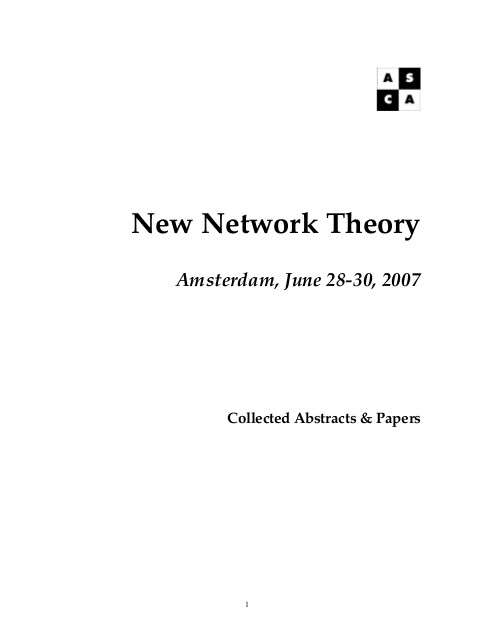Peter-Paul Verbeek: What Things Do: Philosophical Reflections on Technology, Agency, and Design (2000/2005)
Filed under book | Tags: · actor-network theory, design, hermeneutics, industrial design, phenomenology, philosophy, philosophy of technology, technology, things

“Our modern society is flooded with all sorts of devices: TV sets, automobiles, microwaves, mobile phones. How are all these things affecting us? How can their role in our lives be understood? What Things Do answers these questions by focusing on how technologies mediate our actions and our perceptions of the world.
Peter-Paul Verbeek develops this innovative approach by first distinguishing it from the classical philosophy of technology formulated by Jaspers and Heidegger, who were concerned that technology would alienate us from ourselves and the world around us. Against this gloomy and overly abstract view, Verbeek draws on and extends the work of more recent philosophers of technology like Don Ihde, Bruno Latour, and Albert Borgmann to present a much more empirically rich and nuanced picture of how material artifacts shape our existence and experiences. In the final part of the book Verbeek shows how his “postphenomenological” approach applies to the technological practice of industrial designers.
Its systematic and historical review of the philosophy of technology makes What Things Do suitable for use as an introductory text, while its innovative approach will make it appealing to readers in many fields, including philosophy, sociology, engineering, and industrial design.”
Originally published in Dutch as De daadkracht der dingen: Over techniek, filosofie en vormgeving by Boom Publishers, Amsterdam, 2000
Translated by Robert P. Crease
Publisher Pennsylvania State University Press, 2005
ISBN 0271025395, 9780271025391
264 pages
PDF (updated on 2021-8-16)
Comments (3)New Network Theory: Collected Abstracts and Papers (2007)
Filed under proceedings | Tags: · actor-network theory, aesthetics, assemblage, internet, locative media, network culture, networks, social movements, web, web 2.0

On 28 – 30 June 2007, the Institute of Network Cultures and Media Studies, University of Amsterdam and the Amsterdam School for Cultural Analysis, organized the international conference New Network Theory. The object of study has shifted from the virtual community and the space of flows to the smart mob. When the object of study changes, so may the distinctions that dominate, particularly the schism between place-based space and place-less space, both organized and given life by networks. New Network Theory explored contemporary network theory that suits and reflects the changes to the objects of study that come to define our understandings of network culture – a post-Castellsian network theory, if you will, that takes technical media seriously.
themes: network theory, the link, locative media, networks and subjectivities, networking and social life, art and info-aesthetics, actor-network theory and assemblage, networks and social movements, mobility and organisation, anomalous objects and processes, and the global and the local.
speakers: Katy Börner, Wendy Chun, Noshir Contractor, Florian Cramer, Rob Stuart, Jean-Paul Fourmentraux, Matthew Fuller, Valdis Krebs, Olia Lialina, Noortje Marres, Anna Munster, Warren Sack, Alan Liu, Ramesh Srini-vasan, Tiziana Terranova, Siva Vaidhyanathan, and many others.
PDF
Three additional papers (Verheij, Cramer, Goriunova)
Speculations. Journal of Speculative Realism, No. 2 (2011)
Filed under journal | Tags: · actor-network theory, networks, ontology, philosophy, speculative realism, theory

Speculations is a journal dedicated to research into speculative realism and post-continental philosophy. Our aim is to facilitate discussion about ongoing developments within these emerging movements and related disciplines. The journal is open access and peer-reviewed.
Edited by Michael Austin, Paul J. Ennis, Fabio Gironi, Thomas Gokey
Published in May 2011
Creative Commons BY-NC-ND license
ISBN 978-1-257-65407-9
PDF (updated on 2014-9-20)
Comment (0)
